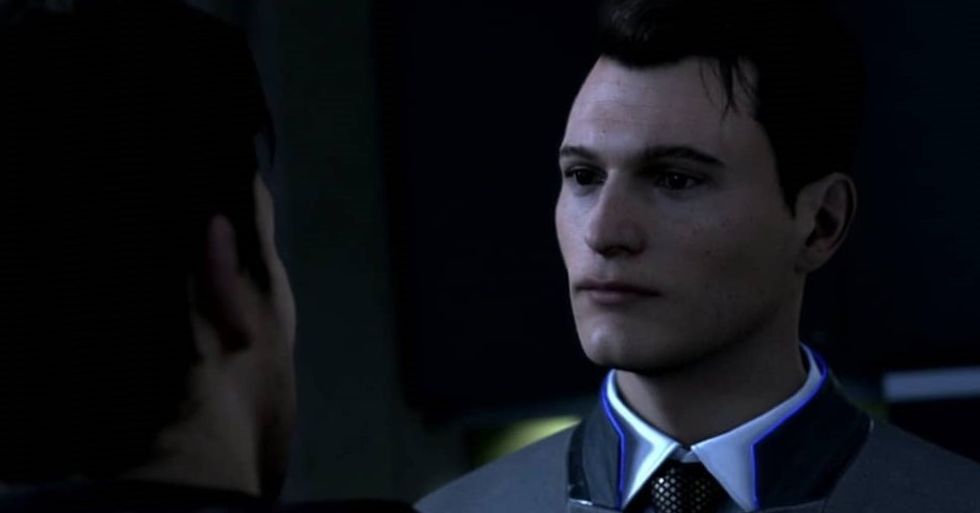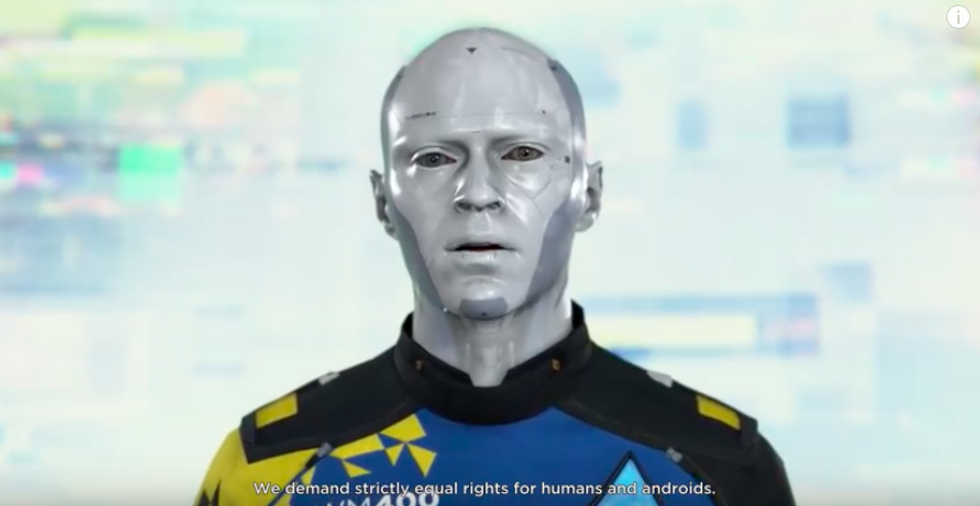Ever watched Game Theory? Those videos never fail to boggle my mind.
Games have always attracted my attention because of their interesting ways of not just telling a story, but bringing a moral to life. Most often, I find the genius in gaming to be the absolutely subtle ways in which the game is able to convey a message to the player without the player even noticing.
In the game "Detroit: Become Human," the game developers are able to include many subtle as well as not so subtle details that discuss human nature and the frameworks of morality.
What I find to be absolutely stunning in "Detroit: Become Human" is the innovative way in which the game creates a story and makes us think about the impacts of the choices we make to either continue the oppression of human-like AI or to free them and treat them as equals.
The existence of AI would lead to the loss of jobs because as usual, advance machinery can take over the laborious and monotonous jobs that humans once did. And if these machines were almost superhuman, the competition would increasingly get more challenging for humans leading to unemployment for many. Instead of getting a babysitter, these machines would watch over the children and house at a perfect level.
These machines could serve as personal chefs, trainers, or even friends for those who often live in solitary. Though it may seem incredibly dehumanizing, these machines offer opportunities that would make life so much easier as well. The question now is simply measuring the pros and cons of having such a machine in your life.
Throughout the game, it's clear that human beings are the oppressors. In the beginning, people begin holding protests in the streets and physically attacking androids for stealing their jobs. It's a conversation we're having today in a milder form. Machines inevitably replace the monotonous and laborious chores that we used to have.
You can see from the very beginning from when Markus is being physically attacked in the streets to the derogatory ways humans treat Connor to finally how Kara's "owner" gets away with abusing his robot child and destroying Kara. In each character, they are given the opportunity to become alive and take a stance against their human creators.
But then that begs the question of how AI could become alive in the first place. How would they be able to truly feel attachment or the emotions that we stimulate in them through pieces of code writing? If they were to genuinely feel these emotions, how valid or legitimate would they be? After all, aren't our own emotions somewhat stimulated by chemicals in our brain like serotonin or norepinephrine, or is there something surreal about the emotional experiences we face? How close are we to AI, and vice versa, how human-like can AI become?
I think it's important to have some sort of preparation or hope for the conceivability of a new form of intelligent life in the future. I think "Detroit: Become Human" perfectly plays out a possibility of how we would react if we were confronted with such an issue. It shows the cycle of repetition throughout history with the oppression of those seen as "inferior" in the eye of society. And if AI were to become human-like, it'd be important to consider how race, gender, sexuality, and further factors play into their treatment. Are there subcategories of privilege within an already underprivileged line of intelligent beings?



















